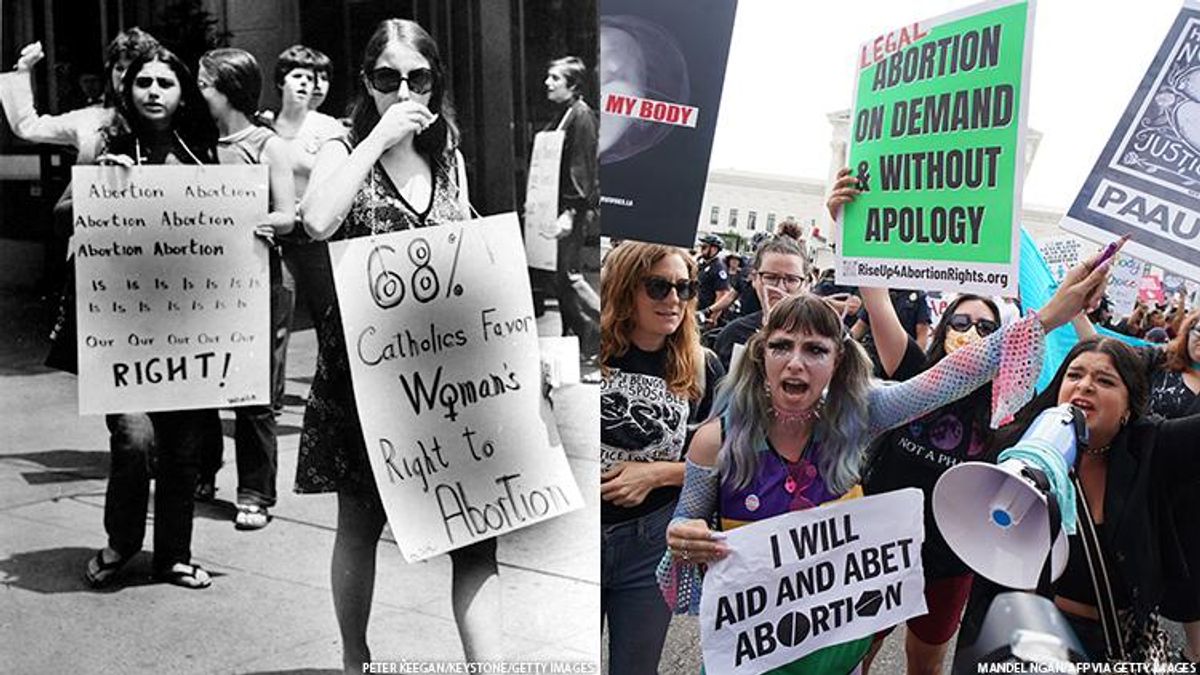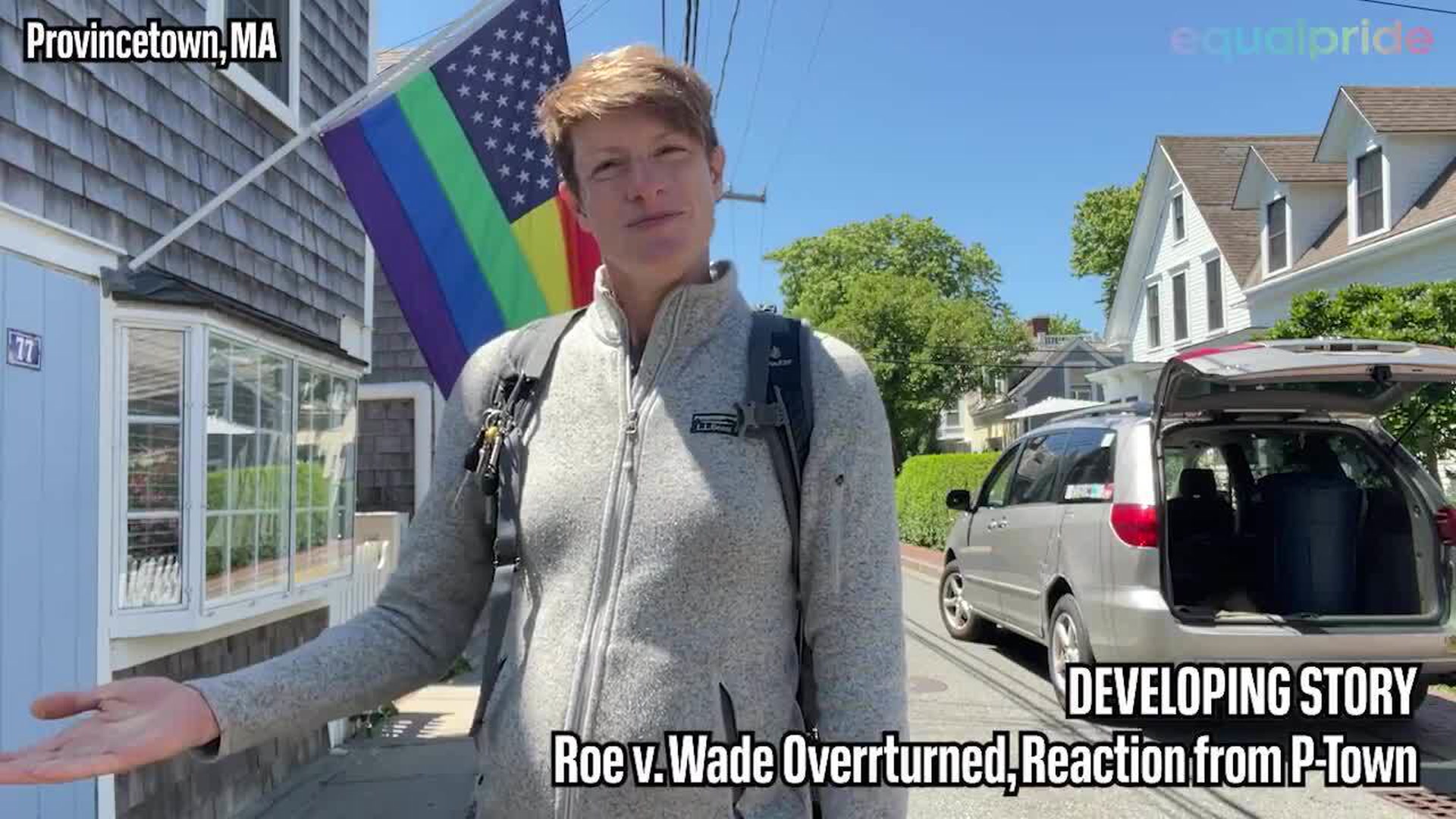In 1970, attorneys for a pregnant woman under the pseudonym "Jane Roe" filed a lawsuit in Dallas challenging the law prohibiting abortions except to save a mother's life. Their case became known as the Roe v. Wade case, which enshrined the ability to have an abortion as a fundamental constitutional right.
In a 6-3 decision today, the U.S. Supreme Court, in an unprecedented move, stripped American citizens of a right they had previously been granted. This decision in the case of Dobbs v. Jackson Women's Health Organizationstands in stark contrast to the one in Roe.
The Supreme Court ruled nearly 50 years ago that Americans have a constitutional right to abortion in a 7-2 decision. Decisions in Roe v. Wade and Doe v. Bolton established the right to choose on January 22, 1973.
Roe stipulated that the right to privacy included the right to terminate a pregnancy. Further, the ruling gave states the authority to regulate abortions after the first trimester and impose qualifications for abortion providers. If state laws included provisions to protect the mother's life or health, they could, for example, prohibit abortion during the third trimester.
According to the court in Doe, there was no absolute right to abortion (as laid out in Roe's trimester system), but it was excessively burdensome to require multiple doctors to determine whether abortion is necessary, something that was required by a Georgia law being challenged.
Justice Harry Blackmun had worked for the Mayo Clinic before becoming a judge, so he had a special perspective on the abortion issue. The idea that 19th-century laws would keep doctors from practicing safe, effective procedures developed by the middle of the 20th century made no sense to him.
As a prominent lawyer in Richmond, Va., Justice Lewis Powell, who also believed abortions should be legal and safe, had offered comfort to a troubled young man at the firm after his girlfriend had died from a botched abortion.Blackmun and Powell's support led to abortion bans being set aside with a clear majority.
In the belief that Blackmun would produce a modest and careful opinion, Chief Justice Warren Burger assigned abortion cases to him. Instead, he wrote an essay that discussed the history of abortion that went back to the ancient Greeks and Romans, followed by recommendations for future abortion cases.
The justices added the most significant part of the ruling in the weeks leading up to its release in 1973: States cannot prohibit abortion until "viability," which occurs at about 28 weeks of pregnancy. Blackmun asserted that an abortion decision in all its aspects until that point is primarily a medical decision, with the responsibility for it resting with the doctor, not the pregnant person.
Aside from noting that the court had previously referred to an implicit right to privacy, Blackmun did not explain how the Constitution included a previously unnoticed right to abortion. As a result, a conservative legal movement emerged, arguing that one should interpret the Constitution according to its original language and history.
He also rejected the Texas claim that the state had the power to protect the life of the unborn. "The unborn have never been recognized in the law as persons in the whole sense ... and we don't agree that, by adopting one theory of life, Texas may override the rights of the pregnant woman." That conclusion helped launch the "right to life" movement, which became the base of the Republican Party.
Related -- Check out more of the Advocate's news coverage on Pride Today:
Roe's core holdings have evolved since 1973, and the government's ability to limit them has also changed. Still, the most fundamental of its holdings remained, reaffirmed in Planned Parenthood v. Casey in 1992, which validated Roe's principle: "At the heart of liberty is the right to define one's own concept of existence, of meaning, of the universe, and of the mystery of human life," Justice Anthony Kennedy wrote in Casey. "Beliefs about these matters could not define the attributes of personhood were they formed under compulsion of the State."
The right to privacy has undergirded several other significant Supreme Court rulings, affirming a right to contraception in Griswold v. Connecticut, a right to interracial marriage in Loving v. Virginia, a right to private consensual sex in Lawrence v. Texas, and a right to same-sex marriage in Obergefell v. Hodges.
The right of LGBTQ+ Americans to live openly as they are is noted in the context of abortion decisions -- and of course, many LGBTQ+ people can and do become pregnant, and some seek abortions.
As part of the equality movement, intimacy had to be decriminalized -- in Lawrence v. Texas, the Supreme Court blocked laws banning sodomy. Obergefell v. Hodges, the 2015 Supreme Court ruling establishing nationwide marriage equality, recognized the connection between reproductive autonomy and same-sex marriage. According to the high court, the Bill of Rights protects personal choices that define a person's identity and beliefs.
Now court watchers warn that these rights may be next.
In his concurring opinion in Dobbs, conservative Justice Clarence Thomas wrote, "In future cases, we should reconsider all of this Court's substantive due process precedents, including Griswold, Lawrence, and Obergefell. Because any substantive due process decision is 'demonstrably erroneous.'" His language indicates an openness to overturn the rights of millions of couples to marry.




















































































